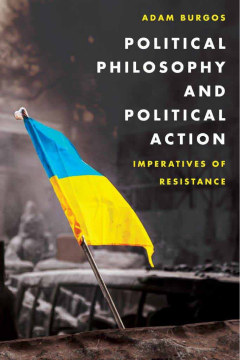
Additional Information
Book Details
Abstract
Political philosophers have long taken inspiration from political movements when crafting their theories, which they hoped would address the universal problems of democracy. Political Philosophy and Political Action investigates the relationship between political practices of popular resistance and political theory.
The text demonstrates how the lived experience on political resistance can help us to analyse and interpret theory, and also reveals how concrete resistance movements can challenge the ideals of political theory generally. It begins by examining the universal aspirations present within the contextual particularities of Black Lives Matter, Occupy Wall Street, and the Arab Spring. Political Philosophy and Political Action then turns to critical examination of Jean-Jacques Rousseau, Karl Marx, John Dewey, and Jacques Rancière, using novel interpretations of their philosophies of equality and democracy to construct a conceptual framework. More specifically, the chapters show how we can analyze resistance movements that incorporate the imperative to resist inequality in the name of democracy. The result is a novel means of thinking about important issues in contemporary political philosophy, including pluralism, oppression and domination, and the purposes and meaning of politics.
The book’s central argument is that resistance serves the function of renewing democratic legitimacy. It challenges the notion that with a proper theory of the State or a proper theory of legitimacy the possibilities of resistance can be cancelled, making resistance either unnecessary or illegitimate (Burgos 2017, p. 5.) This text approaches legitimacy as a recurrent test a political system has to endure with regards to the common interest and the membership of a polity. … the book makes an interesting reading as it rehearses the interconnection of political and sociological concepts, grounded on contemporary U.S. instances: protest, inequality, exclusion, status quo, legitimacy, collective action, identity, culturalmeaning, as well as revolution, reform, and resistance.
Adam Burgos is Postdoctoral Fellow in Philosophy at Bucknell University.
Political Philosophy and Political Action provides a sustained and original contribution to egalitarian political thought. Burgos' nuanced reading of the figures he examines discovers aspects or openings of their thought that I have not previously encountered. It is a worthy addition to the growing literature on egalitarian thought and practice.
Todd May, Class of 1941 Memorial Professor of the Humanities, Clemson University, USA
In Political Philosophy and Political Action, Adam Burgos charts the new semantic territory of contemporary resistance movements including Black Lives Matter, Occupy Wall Street, and Arab Spring to show how they depart from traditional theories of democratic resistance articulated by Rousseau, Marx, Dewey, and Rancière. This timely and important book is one of the first to analyze contemporary resistance movements fueled by social media in terms of traditional political theory.
Kelly Oliver, W. Alton Jones Professor of Philosophy, Vanderbilt University
